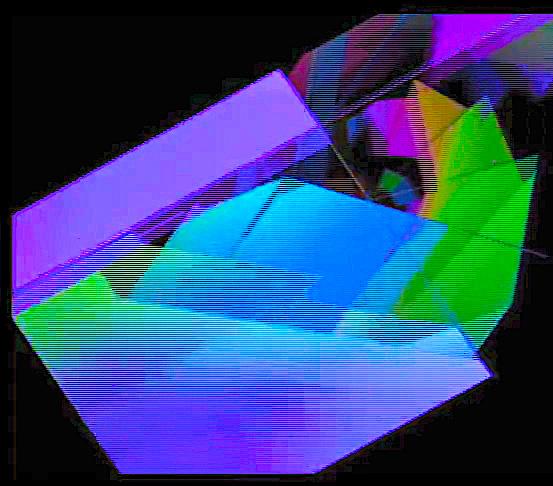The Coast Preview of Open Waters by Moira Donovan
Open Waters Festival entices you in
The fourth in an annual series, Open Waters Festival cross-pollinates, challenges and evokes emotion.
By Moira DonovanOpen Waters Festival
Friday, January 9, 7:30pm to Saturday, January 10, 7:30pm
Dalhousie Arts Centre and Atlantica Hotel Commons Room
Festival pass $40/$35, Single entrance $20
902-494-3820 artscentre.dal.ca
Is there a difference between hearing music and really listening to it? For Paul Cram, artistic director of the Upstream Music Association, the distinction can be explosive. In a performance where audience members and musicians are listening to each other, "you can blow the roof off," he says.
It's an incendiary combination Cram hopes to ignite with the Association's latest overture. The 4th annual Open Waters Festival—presenting new and improvised music that plays with the art of listening—will take place Friday, January 9 and Saturday, January 10 at the Dalhousie Arts Centre and the Atlantica Hotel Commons Room, with bookending performances from Symphony Nova Scotia on January 8 and 13.
With performances by individual musicians and small ensembles featuring both local and international musicians—including New York-based saxophonist Joe McPhee—the festival has "something for everyone," says Cram.
While the festival draws on eclectic musical traditions, it offers fare that is regionally rooted, bringing together predominantly Atlantic musicians as well as international players to collaborate on original, unconventional scores. By encouraging musicians to cross-pollinate organically rather than deliver pre-arranged performances, Open Waters orchestrates music that's distinct to its Maritime context. "It's really from this place," says Jeff Reilly, founding member of Upstream and musician in the festival.
Though the festival's musicians maintain a connection to composed music, it's a relationship underpinned by improvisation. "What is unique about Open Waters is that everybody is expected to improvise at some point," notes Reilly. "You're responsible for the original sounds, so in a sense you're as important as the composer in terms of the outcome."
Yet Open Waters performances don't eschew composition entirely—instead, the festival turns it on its head. "It doesn't throw the traditions away," says Lukas Pearse, a bassist with performances both days of the festival. "It incorporates them into thinking of other ways of doing things."
From a musician's standpoint, says Pearse, this dynamic is a challenging one, requiring mediation between a relationship to written music and being present enough to invent the rest as it comes along.
It's a level of engagement that applies equally to the audience. Open Waters rejects a vision of the concert as a transaction, offering performances that embody something about music that goes beyond its characterization as a product.
In doing so, the festival maintains a commitment to dialogue—a commitment that extends to a Talk Back event organized for Saturday, where a group of improvisers will take questions from the audience—that encourages the audience to pick their own path from the routes that open before them.
Audiences unfamiliar with the music, suggests Pearse, should come armed with an open mind prepared to "go with it, let it happen and make their own decisions."
When it comes to the performances, Cram is candid. Like anything worth doing, he notes it's risky. You might not always feel comfortable with what you hear, he says, "but you've felt something. It's better than going to something and feeling nothing."
"That's why we call it Open Waters," says Cram. "The waters part for you."
Once you're willing to wade in, there's no telling what you might find.
—
posted





